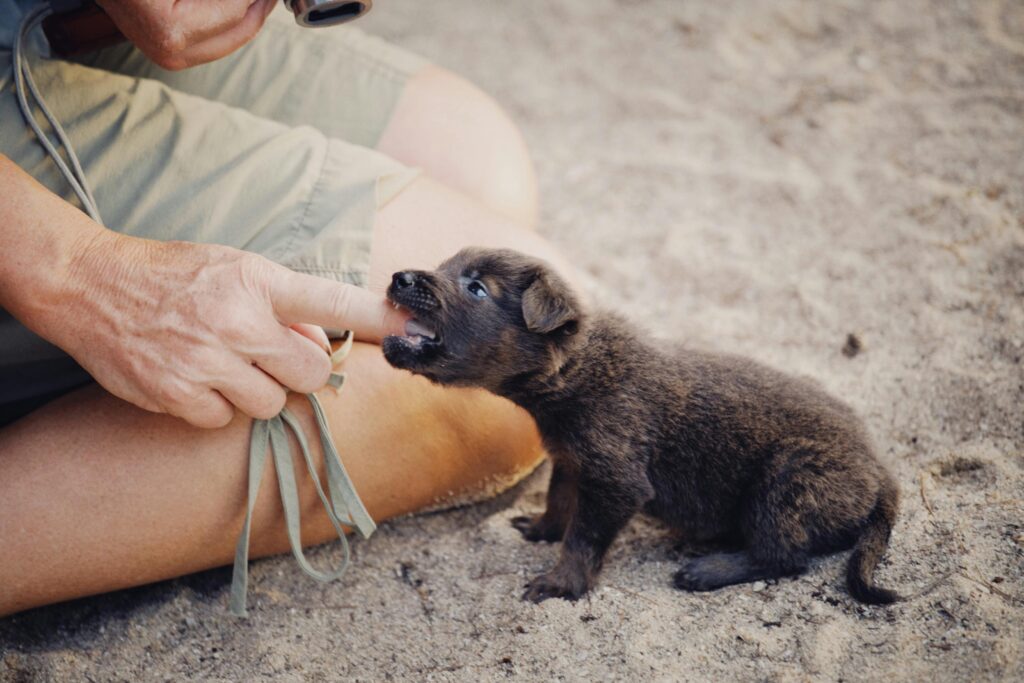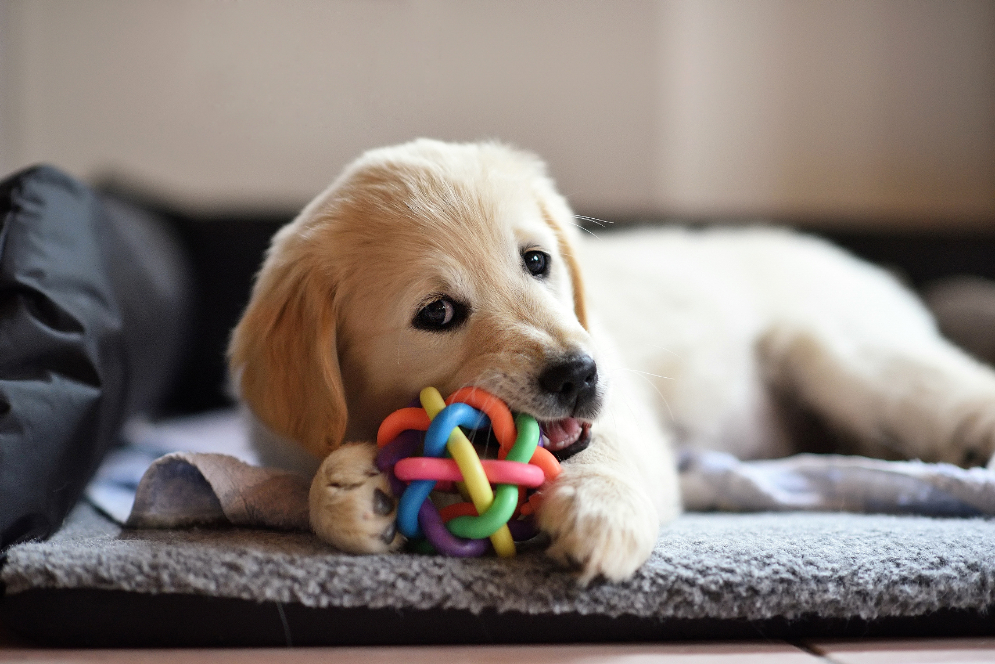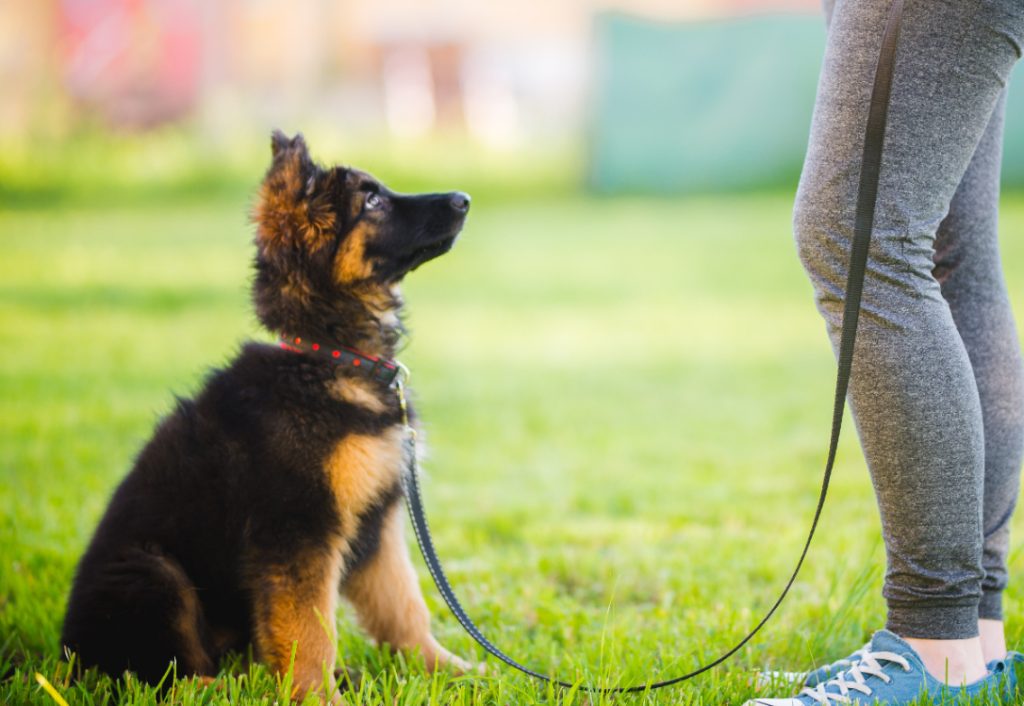
By Kristen DeLima
September 30, 2024
Category: Puppy Training | Reading Time: 5-7 minutes
Puppies are undeniably adorable bundles of joy, with their soft fur, playful behavior, and those big, soulful eyes that melt your heart. But amidst all the cuteness lies a tiny challenge—those sharp, dagger-like teeth! Yes, puppy play biting can turn moments of cuddles into painful encounters. Understanding this phase and implementing proper training can transform your furry friend into a well-mannered companion.
Imagine being in a new world without hands; puppies use their mouths to explore. Everything from furniture to fingers is a potential object of investigation, leading to puppy biting behavior.
Mouthing and nipping are natural aspects of play for puppies. In their interactions with other puppies, they learn boundaries by yelping or whining to signal when things get too rough. Human skin is far more sensitive so teaching bite inhibition—learning to control the force of their bite—is crucial. This involves guiding them to play gently with us, a fundamental step in their training.
Puppy play biting often increases when a puppy becomes over-stimulated. Too much excitement can make it harder for them to control their behavior, leading to more frequent nipping.
Around 4 months old, puppies start losing their baby teeth to make room for adult teeth. By the time they’re 6 months old, all their baby teeth should be replaced with adult teeth.
When the puppy gets too nippy, withdraw your attention. Turn around and take a few steps away from them, ignoring them. If it persists, a short timeout teaches them that rough play ends the fun. You can also place the puppy in their crate or playpen for a few minutes to allow them to settle down. This brief separation helps them understand that biting leads to a pause in play. This is one of the simplest ways to stop puppy biting.
Positive reinforcement works wonders. Praise or offer treats when your puppy plays gently. This encourages the desired behavior and helps them understand that calm, gentle interactions lead to rewards.
Redirecting their chewing to toys saves your belongings from becoming casualties. Keep a variety of enticing chew toys with different textures handy to distract them from inappropriate puppy nipping.
Regular physical and mental activities can significantly reduce the likelihood of destructive chewing. Engage your puppy in daily walks, playtime, and training sessions to keep them happy and tire them out.

Avoid getting rough with your puppy or engaging in face-to-face interactions. Rough play can teach the dog that puppy biting behavior is acceptable. This behavior might seem innocent but can escalate into inappropriate biting.
Using harsh methods or punishment can create fear and anxiety in your puppy, worsening the problem. Using force only instills fear, leading to long-term behavioral problems. Instead, focus on positive reinforcement and redirect their biting to appropriate toys.
Play is vital for their development and your bond. Instead of discouraging play altogether, focus on redirecting their energy toward appropriate outlets. For example, you can engage your puppy in chasing a flirt pole or a long rope toy to help release energy in a controlled way. Another great way to burn off energy is through interactive games like fetch or tug-of-war, which keep them physically active while reinforcing positive play behavior.
By understanding typical puppy behavior and employing patient, positive training methods, you’ll help your puppy navigate this temporary phase. Remember, teething doesn’t last forever—it’s just a stage of puppyhood. By following these tips, you can reduce puppy play biting and guide your puppy toward the desired behaviors that will set them up for a lifetime of good habits.
If you need extra support, our professional dog trainers are here to help. Sign up for our private training lessons or virtual sessions today and enjoy a happy, well-behaved companion for years to come!
